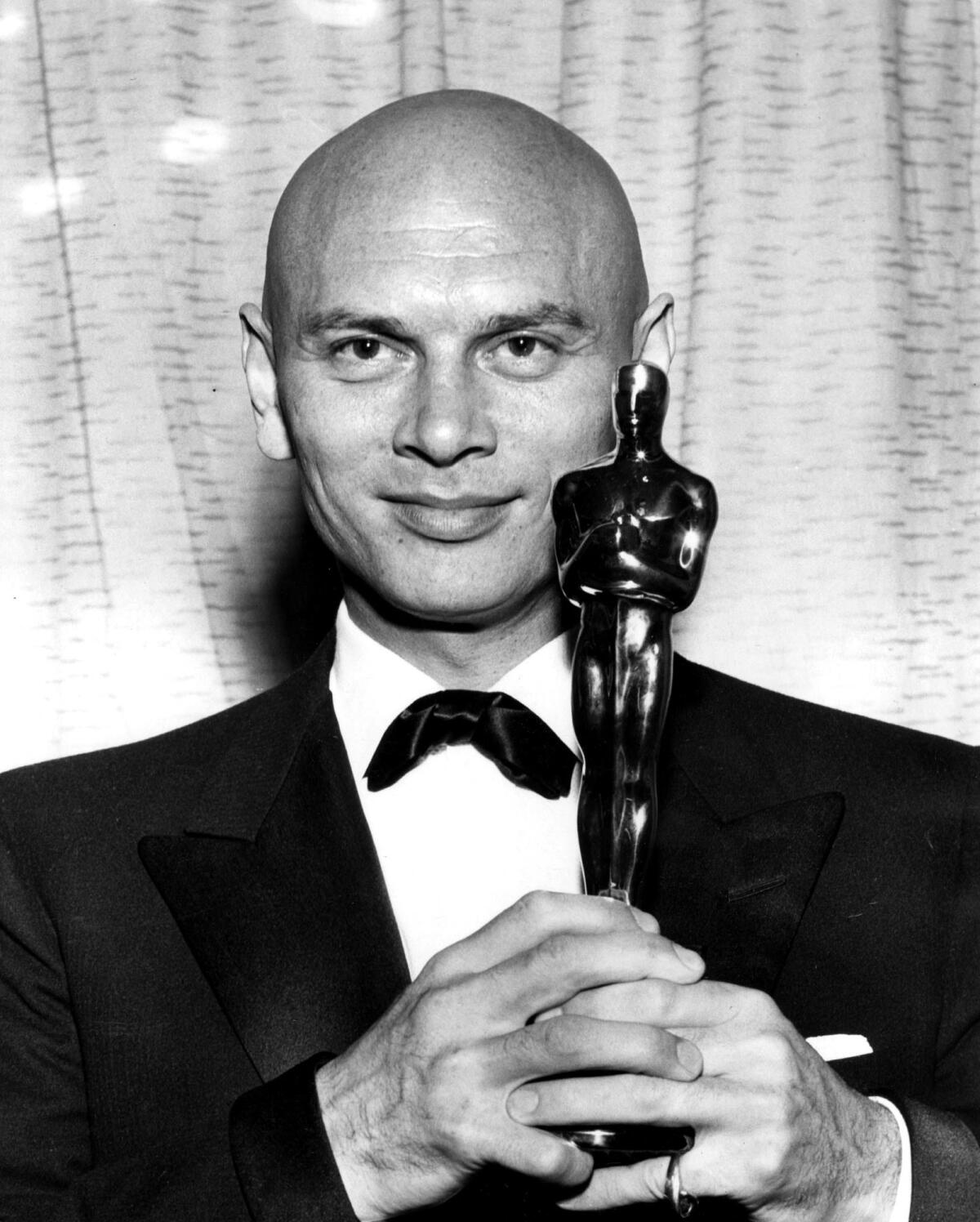Why Steven Yeun, not Yul Brynner, is Oscars’ first Asian American lead actor nominee

- Share via
When Steven Yeun, a Korean American, was nominated Monday for an Oscar for his performance in “Minari,” The Times and others declared he had made history as the first Asian American nominee in the lead actor category.
Not everyone agreed.
Consult the internet and you’ll find the following people listed along with Yeun among Asian Academy Award winners and nominees for best actor: Yul Brynner, Topol, Ben Kingsley and Riz Ahmed, another 2021 nominee.
All of those men have ties to Asia in some way. But as a continent, Asia is so big that it contains China and more than three-quarters of Russia, in addition to myriad smaller nations including Japan and the Koreas.
Steven Yeun’s first Oscar nomination also makes Oscars history for his work in Lee Isaac Chung’s ‘Minari.’
Then there’s also the South Asian subcontinent, home to Bangladesh, Bhutan, India, the Maldives, Nepal, Pakistan and Sri Lanka. Plus there is the caveat that the person is Asian American.
Therein lies the confusion about whether Yeun, who is of East Asian descent and was raised in the U.S., was truly the first Asian American lead actor nominee.
Brynner, who took home the 1957 best actor trophy for his role in “The King and I,” was born Yuliy Borisovich Briner in the far eastern part of Russia. According to “Yul: The Man Who Would Be King,” a biography written by his son, Rock Brynner, the actor was half-Swiss, half-Tatar, and born in Vladivostok.

He had a paternal grandfather who came from Switzerland, a paternal grandmother who was allegedly the daughter of a Mongolian prince — hence the Tatar — and a mother who was Russian.
Rock Brynner wrote that at a certain point his father adopted a “policy of public disinformation” about his heritage, adding to the confusion — with some of those false details even appearing in The Times’ obituary of the Oscar winner. Yul’s father left his mother when the actor was 4 and moved the children to China a few years later, Rock Brynner wrote, so she was almost certainly not a Gypsy who died in childbirth, as the 1985 obit states.
Also, though he immigrated to America in the 1940s, Brynner wound up moving to his grandfather’s home country, Switzerland, and in 1965 renounced his U.S. citizenship after tax disputes with the IRS. So, not very Asian, and not really American just a few years after his Oscar win.
Aaron Sorkin is out (for directing), LaKeith Stanfield is in (for supporting actor) and all the Oscar morning surprises and snubs.
Topol, the Israeli actor who was nominated for best actor for “Fiddler on the Roof” in 1971, is also on an internet list of Asian actors nominated for Academy Awards. Turns out he was born Chaim Topol in Tel Aviv to a father who was of Russian descent. He was technically descended from people who lived on the Asian continent, albeit Russian people. He was never an American citizen.
Kingsley, a four-time lead actor nominee who won in 1983 for “Gandhi,” had a Kenyan-born father who was of South Asian (Indian) descent, and his mother was English. That combo makes the British actor very much part Asian, and also very much not American. We move on.
What about Riz Ahmed? Like Kingsley, the British “Sound of Metal” actor also falls into the not-an-American category, despite his South Asian (Pakistani) background. He is the first Muslim nominee for lead actor, though.
Including ‘Minari’ and ‘Nomadland,’ there are multiple projects that scored historic 2021 Oscar nominations. Here’s a helpful guide.
Meanwhile, Yeun, previously known for playing Glenn Rhee on AMC’s “The Walking Dead,” was born in South Korea, then immigrated with his family to Saskatchewan in Canada and finally to Troy, Mich., where he was raised. Asian? Check. American? Check.
So there you have it: Steven Yeun is in fact the first Asian American actor to be nominated for a lead actor Oscar.
Now, is he the first lead actor nominee to have killed zombies for six seasons before getting an Oscar nod? You’ll have to figure that one out for yourself.
More to Read
Only good movies
Get the Indie Focus newsletter, Mark Olsen's weekly guide to the world of cinema.
You may occasionally receive promotional content from the Los Angeles Times.













